Teff Nutrition
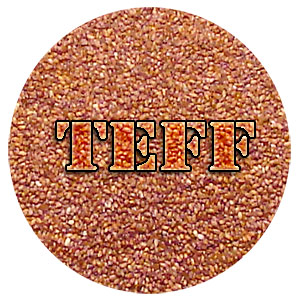
Teff, indigenous to Ethiopian highlands, is highly nutritious wholegrain that is quickly gaining popularity. On account of its high protein content, this ancient grain has come in for considerable attention. Small as a poppy seed with a nutty, grainy taste, Teff is one of the world's smallest grains. Teff is derived from 'Teffa' an Amharic word for 'lost'. The grain is so small that once dropped it is likely to be lost. Nearly Three thousand grains of Teff weigh one gram! Teff grains can grow in the harshest of conditions; from sea level to even 3000 meters altitude.
In Ethiopia, Teff is essentially used for making injera, traditional flat bread made with fermented teff flour. Interestingly, Ethiopians use injera as an edible serving plate on which delicious stews and vegetables are served. Teff is also used to produce alcoholic beverages such as tell and katikala. Teff, Eragrostis teffin Latin is a grass unique to Ethiopia in that it was not cultivated anywhere else in the world till a few years ago. As it is so tiny, it is labor intensive to harvest and process in its native place.
Teff nutritive value
Teff is an excellent source of protein and fiber. A quarter-cup of uncooked Teff offers 7 grams of protein, 4 grams of dietary fiber, 25 % of our daily recommended magnesium, 20 % of daily recommended iron and 10% of your daily calcium with good amount of Vitamin B6 and zinc.
To put it in the right perspective, Teff contains 11 % protein, 80 % complex carbohydrates and 3 % fat.
It is also an excellent source of iron, potassium and other essential minerals.
Teff contains high amounts of amino acids, especially lysine which is not commonly found in grains.
Teff is high in calcium (one cup contains 12% of daily recommended value.) and a good source of vitamin C. It is also gluten free and can be a great option for those who are gluten sensitive or suffering from celiac disease.
Teff contains generous amount of high resistance starch which is useful in preventing colon cancer. This type of starch does not get digested easily in the small intestine but further goes to the large intestine and gets processed there slowly. This process discourages the harmful bacteria from thriving on the large intestine and is ideal for maintaining colon health.
Teff is very rich in dietary fiber, thereby aiding blood-sugar management and weight control. If we look at its composition, it contains 11% protein, 80% complex carbohydrate and 3% fat, making it ideal for weight watchers. Teff is also low in sodium and we all know that low sodium levels are good for our hearts.
Cooking Teff
Teff is highly versatile and can be incorporated into various recipes effortlessly. It is also quick to cook and is an ideal choice for people on the go. Teff can be cooked on its own or combined with other grains and vegetables. Teff is consumed either as a grain or as flour.
It acts as a healthy binder for soups, stews and gravies. Its mild and nutty taste makes it a good alternative to add to breads, biscuits, cookies, cakes, stir fry dishes, casseroles, soups, stews, and puddings. Traditionally Teff is fermented slightly before use. A fermented teff offers optimum nutrition when compared to the plain cooked teff. However fermentation lends a sour taste to teff. Today teff is used in recipes beyond the traditional. Teff waffles, wraps and bakes are available.
Teff Recipes
Injera - Ethiopian Pan cake like Flat bread
3 cup Teff flour
4 cup warm water
Salt as per taste
Oil as needed
Mix the teff flour with water in a tall narrow vessel. Tie a white cotton cloth in the neck and leave this to ferment in a warm room (temperature around 25 - 35 degree C) for about 3 days.
Add salt as per your taste. Set a large wide (around 20 inch diameter) iron skillet on the stove in high heat. Spray oil on the surface. Apply the batter (should be of thin consistency) across the surface and spread evenly. Cook until it forms bubbles on the surface. Remove the Injera with a flat spoon. Serve with Stews.
Injera is akin to Asian South Indian Dosa which is made of rice flour. Dosas are served with Sambar, a kind of lentil stew.
Teff porridge
Teff porridge is a simple and basic version of cooking the grain.
3 cups water
1 cup Teff
Salt to taste
Dry roast one cup of teff in a pan for five minutes. Combine the roasted teff with three cups of water in a pot. Boil the mixture on a low heat for about 20 minutes stirring it occasionally. Add a pinch of cinnamon to the porridge. Switch off the flame once the water is completely absorbed. Now it is ready to be eaten.
Porridge can be made even more nutritious by adding few nuts and fruits. Apple and dates make an interesting combination to be added to the porridge.
Teff Pancakes
2 cups of brown teff flour
2 teaspoons baking powder 3/4 teaspoon
baking soda 1/2 teaspoon
sea salt 1 tablespoon
cinnamon 2 cups
soy milk 1/2 cup
apple sauce
2 large eggs
3 tablespoons oil
2 tablespoons maple syrup
1 tablespoon honey
Heat a medium sized skillet over moderate heat. Take a large bowl and mix the teff flour with salt, baking powder, baking soda and cinnamon. Take another bowl and whisk the eggs in it. Slowly add soy milk, apple sauce, maple syrup and honey to the whisked egg. Now add all the dry ingredients to the egg mixture to make a smooth batter.
Grease the heated skillet with one teaspoon oil and pour one scoop of batter. Cook for 2 minutes on one side, then turn the pancake and cook for one more minute on the other side. Apply little oil on the other side too. Take it off the skillet when golden brown. Drizzle maple syrup over the pancake.
Fruity Muffins with teff
1 cup teff flour
1/2 cup brown rice
flour 11/2 tsps
Baking powder 1/2 tsp
Cinnamon powder One pinch
Nutmeg powder 1/4 tsp
Salt
2 large eggs
1/3 cup olive oil
2/3 cup milk
1/2 cup blueberries
1 cup shredded apple
1/2 cup mixed nuts chopped
1/2 cup raisins
Pre-heat the oven to 400 degrees Fahrenheit. Dust and coat a muffin tin. Combine the flour with cinnamon powder, nutmeg powder, baking powder and salt. In a second bowl whisk the eggs and mix milk, olive oil. Add chopped and shredded apple and blue berries to the mixture. Now add all the dry ingredients into this mixture along with the nuts and whisk it well. Pour the mixture into the muffin tins and bake them in an oven for 30 minutes.
Top of the Page: Teff Nutrition
Tags:#Teff grain #teff nutrition #teff flour #teff recipes
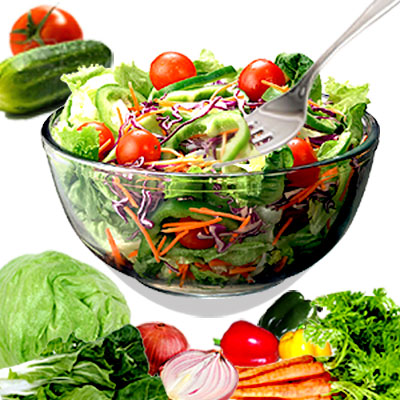 Food and Nutrition Facts
Food and Nutrition Facts Chamomile
Parsnip Soup
Dim Sum
Gazpacho Soup
Whole Grain Cereal
Jicama Nutrition
Bok Choy Stir Fry
Chia Seeds Benefits
Teff Nutrition
Kaniwa
Flax Seed
Wheatgrass Benefits
Kelp Benefits
Types of Chili Peppers
Medicinal Benefits of Pomegranate
Arugula Leaves
Maca Root
Pitaya Fruit
Benefits of Celery
Leek
Asparagus Benefits
Oyster Stew
Oyster Mushroom
Lupin Beans
Quinoa
Freekeh
Extra Virgin Olive Oil
Dill Pickle
Sauerkraut
Fat Burning Foods
Nutrition Chart
Food Combining
Calorie Counter
calories ...
Non Alcoholic Beverage
Punch Recipes
Food Label Nutrition
Homemade Sausages
Cooking Steak
Eating on a Budget
Budget Friendly Recipes
Quick Recipes
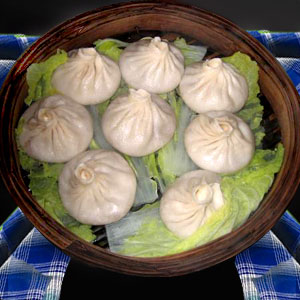 Healthy Packed Lunch
Healthy Packed Lunch Overnight Oats Recipes
Eggplant Casserole
Brunch Recipes
Burrito Recipes
Muffin Recipes
Cupcake Frosting
Apple Crisp
Stir Fry Cooking
Seafood Salad Recipe
Cooking Corn on the Cob
Finger Food Recipe
Sandwich Recipe
Bread Stuffing Recipes
Easy Chili Recipes
Picnic Recipes
Edible Mushroom Recipes
Mushroom Soup Recipes
Dip Recipe
Tapas Recipe
Corned Beef Recipe
Canned Salmon Recipe
Tilapia Recipes
Crumb Cake
Flourless Chocolate Cake
Regional Food
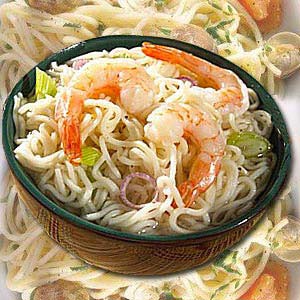 Lasagna Recipe
Lasagna Recipe Peruvian Ceviche
Chinese Food Recipe
Vietnamese Food Recipe
Malaysian Food
Korean Food Recipe
Indian Curry Recipe
Edible Rice Paper
Mexican Food Recipe
Quesadilla
Guacamole Dip
Italian Food Recipe
Spanish Food Recipe
Kosher Food
Falafel Recipe
Tandoori Chicken
Noodles
Canape
Couscous
Meatloaf
Chowder
Gumbo Recipe
Crockpot Recipes
Moroccan Food
Healthy Food
Pre Workout Snack
Matcha Tea
Simple food Swaps to Lose Weight
Foods to Beat Stress
Foods to beat Insomnia
Bone Density Foods
Prebiotic Foods
Kefir Grains
Agave Nectar
Spicy Trail Mix
Pesto Sauce
Homemade Hummus
Crab Cake Sauce
Bamboo Shoots Nutrition
Lemon Grass Plant
Butter Beans Recipes
Loose Green Tea
Seaweed Nutrition
Healthy Food
Low Fat Granola Bar
Steel Cut Oatmeal
Fruit Pizza
Pizza Toppings
Green Smoothie
Healthy Meal Planning
Delicious Mealtime Recipes
Heart Healthy Fats
Healthy Heart Recipe
Healthy Dinner Recipe
Healthy Dessert Recipe
Healthy Fast Food
Healthy Kid Recipe
Probiotic Food
Diabetic Friendly Foods
Fruit Salad Recipe
Bread Pudding
Tofu Recipe
Oat Bran
Broccoli Salad
Avocado Recipe
Iron Rich Food
Brain Foods
Antioxidant Food
Natural Diuretic
Low Fat Cooking Tips
Rice Pilaf Recipe
Low fat Chicken Recipe
Food Tips
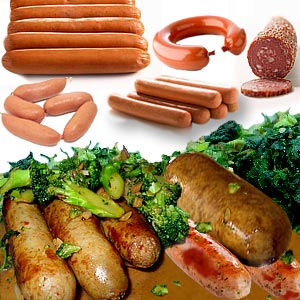
Sous Vide Cooking Technique
Natural Sugar Substitute
Stevia Sugar Substitute
Sunflower Seeds Nutrition
Bouquet Garni
Cake Decorating Tips
High Satiety Foods
Thanksgiving Dinner
Safe Food Storage
Frozen Food Storage Tips
Cold Storage Food Tips
Leftover Recipe
Food Pyramid
Dairy Free Food
Microwave Cooking
Food Intolerance
Homemade Ice Cream
Apple Cider Vinegar
Benefits of Honey
Beverage Cooler
Food Poisoning Symptom
Food Allergy Symptom
Food Addiction
Top of the Page: Teff Nutrition
Popularity Index: 101,307

